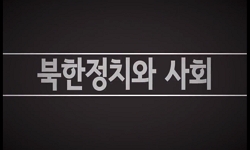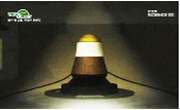It is unusual for North Korea, a closed personalist dictatorship, to preserve power and regime through hereditary succession. North Korea has survived in the midst of the global democratization movements and the collapse of communism in Eastern Europe...
http://chineseinput.net/에서 pinyin(병음)방식으로 중국어를 변환할 수 있습니다.
변환된 중국어를 복사하여 사용하시면 됩니다.
- 中文 을 입력하시려면 zhongwen을 입력하시고 space를누르시면됩니다.
- 北京 을 입력하시려면 beijing을 입력하시고 space를 누르시면 됩니다.

토픽모델링으로 본 북한 3대 지도자의 정당성 주장 분석 = A Research on North Korean Leaders’ Legitimacy Claims by Topicmodeling
한글로보기https://www.riss.kr/link?id=A108372290
- 저자
- 발행기관
- 학술지명
- 권호사항
-
발행연도
2022
-
작성언어
-
-
주제어
북한 ; 토픽모델링 ; 텍스트마이닝 ; 정당성 주장 ; 김일성 ; 김정일 ; 김정은 ; North Korea ; Legitimacy Claim ; Textmining ; Topic modeling ; Kim Il-sung ; Kim Jong-il ; Kim Jong-un ; Ruling Ideology ; Personalism ; National Foundation Medal
-
KDC
300
-
등재정보
KCI등재
-
자료형태
학술저널
-
수록면
51-98(48쪽)
- 제공처
- 소장기관
-
0
상세조회 -
0
다운로드
부가정보
다국어 초록 (Multilingual Abstract)
It is unusual for North Korea, a closed personalist dictatorship, to preserve power and regime through hereditary succession. North Korea has survived in the midst of the global democratization movements and the collapse of communism in Eastern Europe. It endured a substantial economic and human security threat posed by the Great Famine in the mid-1990s and is withstanding economic sanctions imposed by the international community. The narrative of three North Korean rulers (Kim’s Family) is beyond conveying personal thoughts; it has been serving as the tool for legitimacy claim to legitimize the governing power and the regime. This study utilizes LDA Topic-modeling on 2,062 speeches, orations, statements, and letters addressed by the three rulers of North Korea from 1930 to early 2019 to provide time series analysis on how the seven sources of North Korean regime legitimacy have changed over the period and further contributed to the regime survival. I categorize the seven sources of legitimacy claim that North Korean rulers have been relying on, namely, (1) National Foundation Medal, (2) ruling ideology, (3) nationalism, (4) personalism, (5) performance, (6) international engagement, and (7) formal institution. As the regime went through hereditary succession, fewer sources of legitimacy claim became available for the successor. Therefore the reliance on the founding father Kim Il-sung became stronger through hereditary succession.
동일학술지(권/호) 다른 논문
-
- 연세대학교 통일연구원
- 김진환 ( JinHwan Kim )
- 2022
- KCI등재
-
역대 대통령의 통일 관련 연설문에서 등장하는 토픽 변화 분석-구조적 토픽 모형과 Word2Vec을 이용한 접근-
- 연세대학교 통일연구원
- 박상현 ( Sanghyun Park )
- 2022
- KCI등재
-
김정은 시기 핵전략의 이중성 : 확증보복태세와 허세부리기
- 연세대학교 통일연구원
- 구본윤 ( Bonyun Gu )
- 2022
- KCI등재
-
북한의 농산물 무역 및 매체동향 분석을 통한 남북협력유망품목 발굴에 대한 연구
- 연세대학교 통일연구원
- 장도환 ( Dohwan Jang )
- 2022
- KCI등재




 KCI
KCI KISS
KISS







